Born around AD 55 in Hierapolis, Phrygia, Epictetus rose from slavery to become a prominent Stoic philosopher. His teachings, marked by a religious tone, resonated strongly with early Christian thinkers. Despite facing expulsion from Rome by Emperor Domitian, Epictetus’ influence endured through his pupil Arrian’s works, the Discourses and Encheiridion.
Central to his philosophy is the Dichotomy of Control, which distinguishes between what is within our control—our thoughts and actions—and what lies beyond it, such as external events. By focusing on the controllable, individuals can achieve tranquility and reduce stress. This principle not only shaped personal resilience but also provided a framework for navigating the unpredictability of life.
Understanding the Dichotomy of Control
The dichotomy of control is a central Stoic concept introduced by Epictetus. It distinguishes between what is within our control and what is not, guiding individuals to focus on internal rather than external factors.
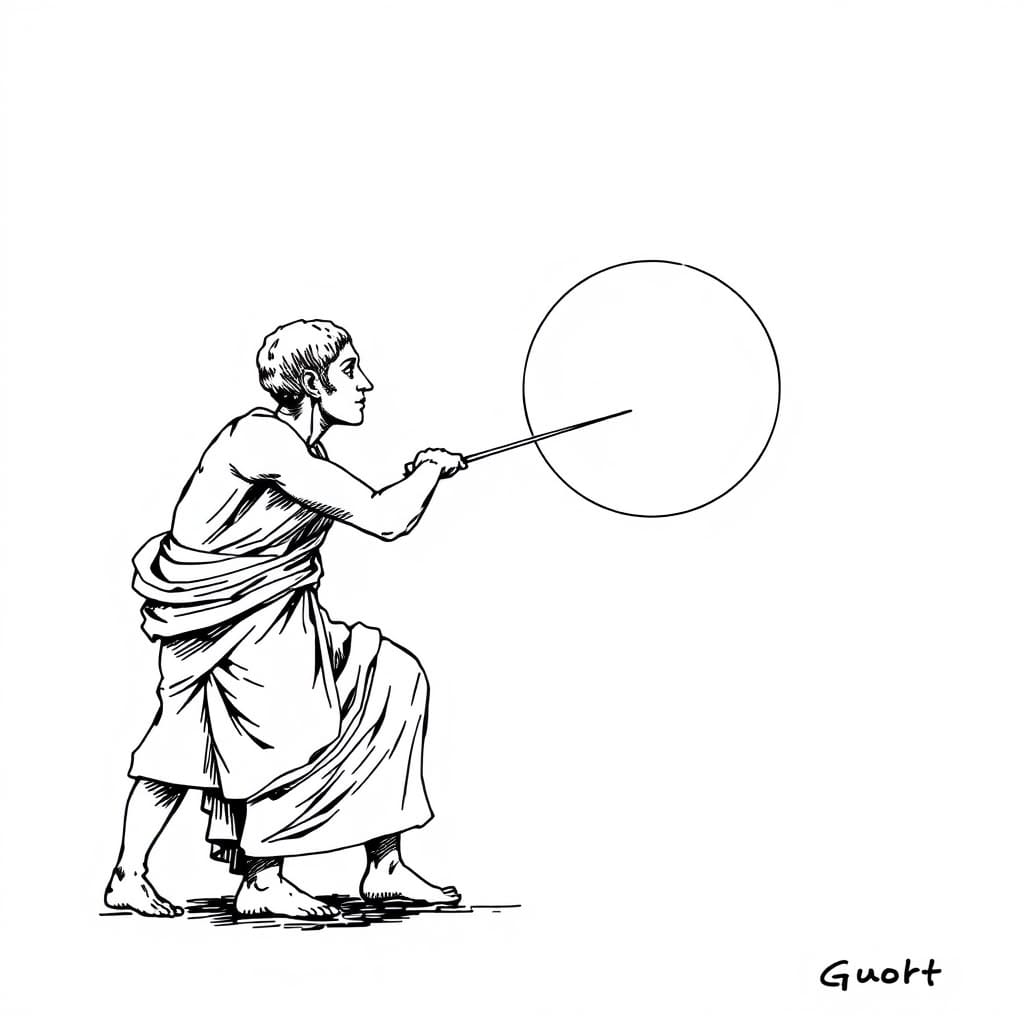
Internal Control
Internal factors, such as our judgments, desires, and actions, are under our control. For instance, choosing to remain calm in a stressful situation exemplifies internal control. By concentrating on these elements, we can reduce stress and enhance our resilience.
External Control
Conversely, external factors include events, others’ opinions, and outcomes that we cannot influence. Recognizing that we cannot control these aspects—like the weather or economic shifts—helps in achieving acceptance and peace of mind. This distinction fosters a more harmonious existence by letting go of the desire to control the uncontrollable.
Roman Political Instability
The Roman Empire grappled with significant political challenges, notably during the second and third centuries. The empire’s vast size led to government corruption and political instability, with over 20 emperors ascending the throne within a mere 75 years. The Praetorian Guard frequently played a role in assassinations, and the rise of the Eastern Empire created a divide that weakened the West.
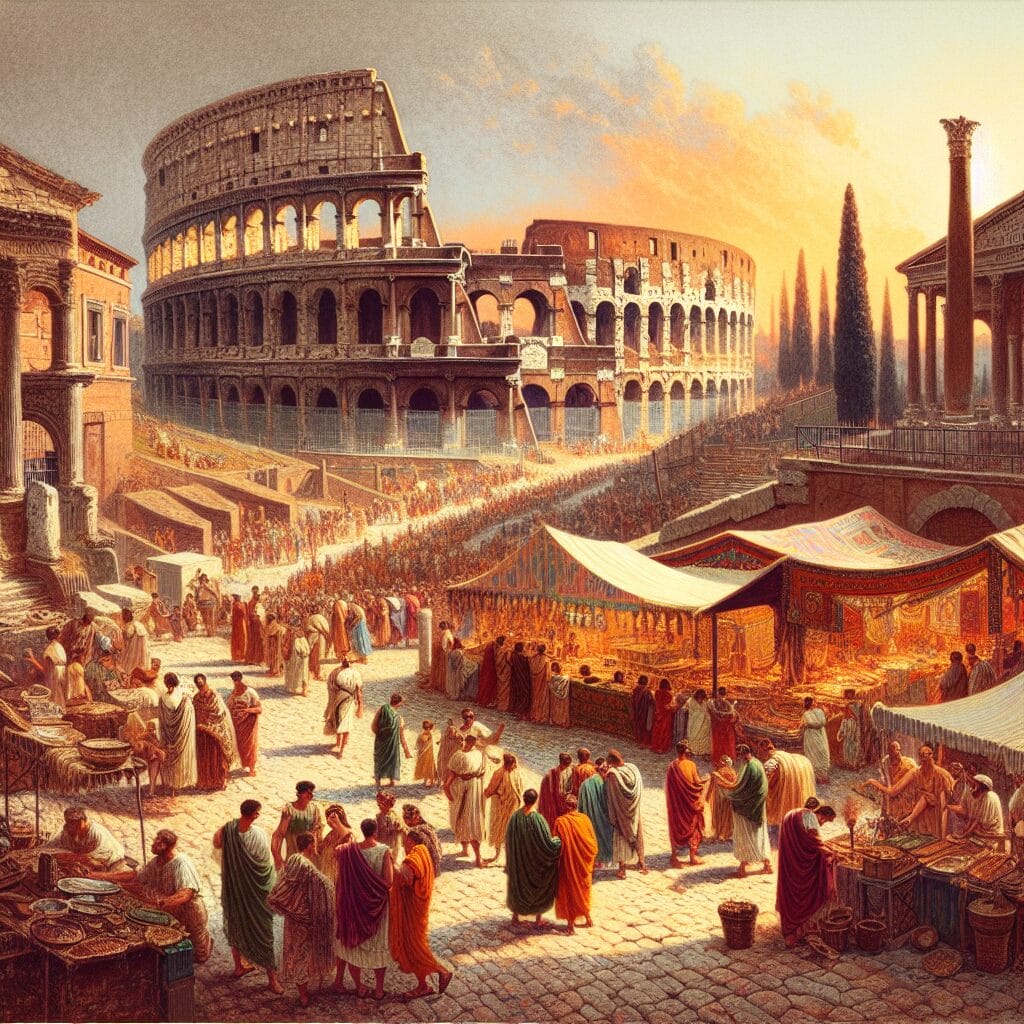
During this tumultuous period, Stoic philosophy emerged as a stabilizing force. By emphasizing personal control and self-discipline, Stoicism offered Romans a way to navigate chaos. The philosophy’s focus on distinguishing between what is within our control and what is not resonated deeply, providing a framework for enduring political upheaval and aligning personal virtue with civic duty, thereby enhancing resilience amidst instability.
Personal Adversity in Ancient Rome
In ancient Rome, citizens faced an array of personal adversities, exacerbated by the political instability and social upheavals of the era. Common challenges included the threat of war, economic uncertainty, and the pressures of societal expectation. These stressors often disrupted daily life, leaving individuals grappling with unpredictability.

In such turbulent times, the philosophy of Stoicism, particularly the teachings of Epictetus, offered solace by emphasizing the dichotomy of control. This philosophy taught Romans to focus on their thoughts and actions—the elements within their control—rather than external events beyond their influence. Historical figures like the Stoic philosopher Marcus Aurelius found strength in these teachings, using them to guide their leadership and personal lives amidst crisis. By internalizing such principles, Romans could maintain resilience and stability even in the face of adversity.
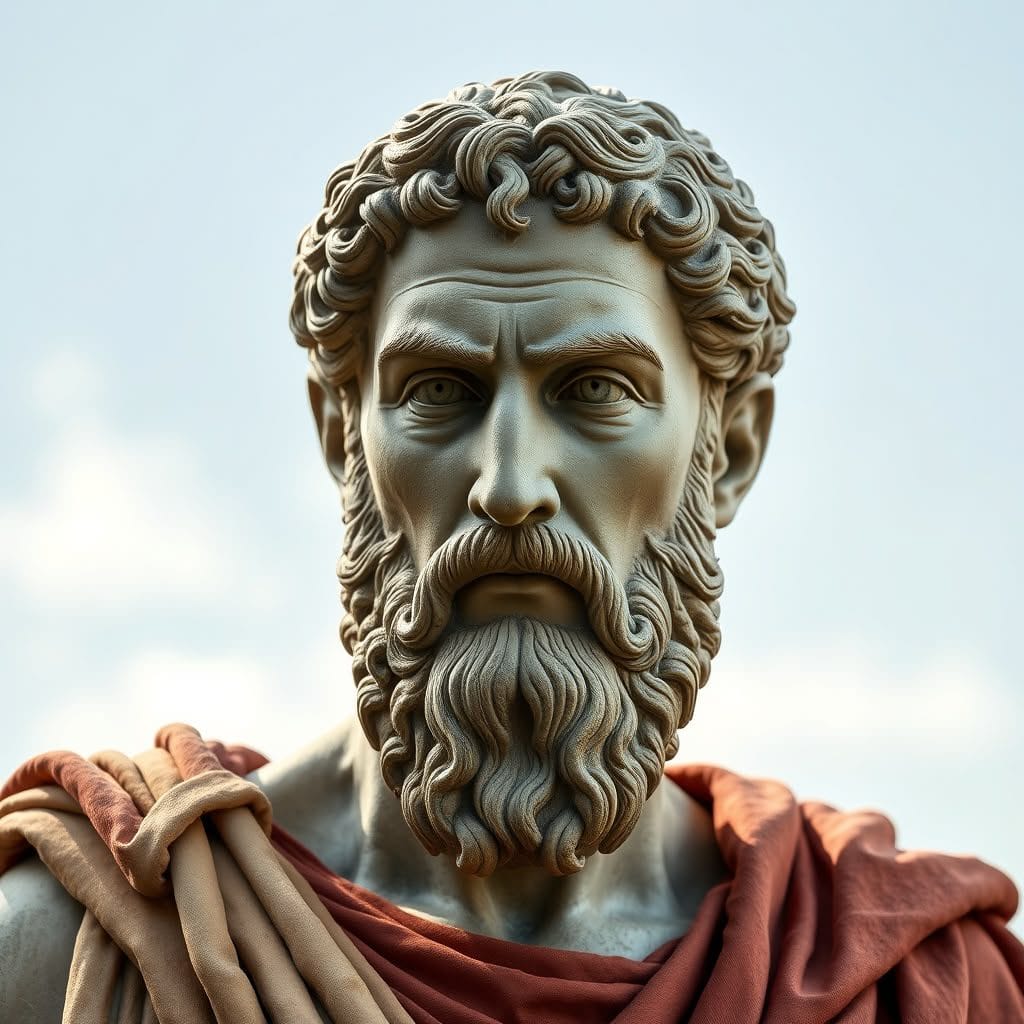
Modern Applications of Dichotomy of Control
Stress Management
In today’s fast-paced world, the dichotomy of control offers valuable insights for managing stress. By distinguishing between what we can control—our thoughts and reactions—and what we cannot—external events—we can reduce anxiety. Techniques such as mindfulness meditation, which encourage focusing on the present moment, align with this principle. By accepting the limits of our control, individuals can better navigate stressful situations.
Dealing with Loss
The philosophy of control is also applicable when confronting loss. Whether losing a job or experiencing a personal setback, recognizing what is within our control can facilitate healing. This approach is evident in modern therapeutic practices, where patients are encouraged to reframe their thoughts, focusing on actionable steps they can take rather than dwelling on uncontrollable outcomes. Such strategies echo the Stoic emphasis on personal control.
Coping with Failure
Failure is an inevitable part of life, yet the dichotomy of control provides a framework for resilience. By concentrating on learning from mistakes and adjusting future actions, individuals can transform failure into growth opportunities. This mindset shift is evident in the entrepreneurial world, where embracing failures as learning experiences is often a key to success. Such a perspective aligns with the Stoic principle of self-discipline and personal improvement.
Influence on Cognitive Behavioral Therapy
Cognitive Behavioral Therapy (CBT) is a widely used psychological approach that focuses on identifying and modifying negative thought patterns to improve emotional well-being. The foundational principles of CBT bear a remarkable resemblance to the teachings of Epictetus, a prominent Stoic philosopher.

Epictetus emphasized that emotional disturbances arise not from events themselves but from our interpretations of those events. This aligns with CBT’s core idea that irrational beliefs about external circumstances lead to emotional distress. For instance, CBT techniques such as rational disputation echo Epictetus’ practice of Socratic questioning, where clients are encouraged to challenge and reframe irrational beliefs.
Furthermore, figures like Albert Ellis and Aaron T. Beck, pioneers of modern cognitive therapy, have acknowledged the Stoic roots of their approaches. They recognized that cognitive restructuring, a key CBT technique, is rooted in the Stoic concept of distinguishing between what is within our control and what is not. This philosophical lineage highlights the enduring influence of Stoic thought on contemporary therapeutic practices, underscoring the relevance of Epictetus’ teachings in fostering emotional resilience.
Data and Statistics on Resilience
Resilience, a crucial component of mental well-being, is increasingly recognized in modern psychology. A study involving corporate executives highlights the significant impact of resilience on mental health and stress management.
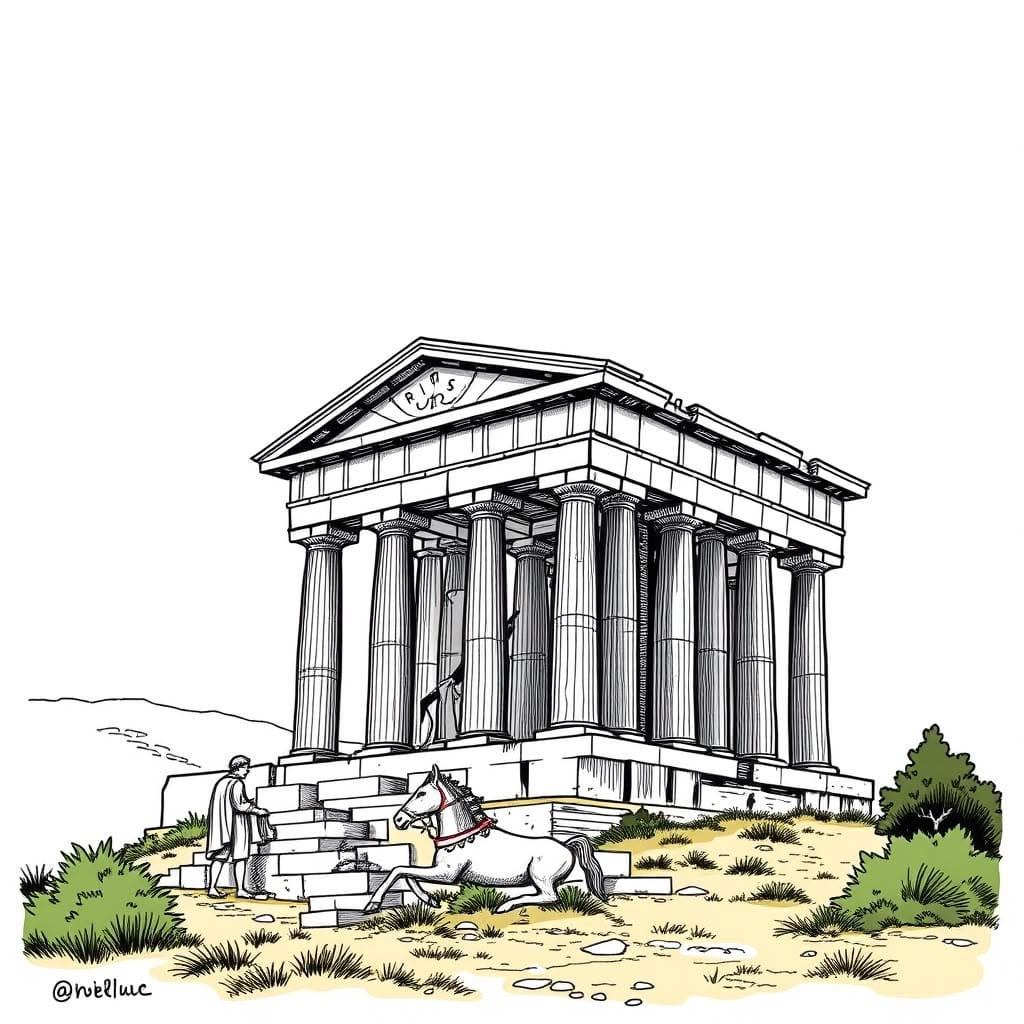
| Resilience Category | Percentage |
|---|---|
| Higher Resilience (Score ≥35) | 41.7% |
| Medium Resilience (Score 30–34) | 34.3% |
| Lower Resilience (Score <30) | 24.0% |
- Lower-resilience individuals had a 4-fold higher prevalence of depression.
- The economic impact of stress on US businesses is estimated at $300 billion annually.
Incorporating philosophical practices, such as Stoicism, can further enhance resilience. Research suggests that Stoic practices, which emphasize the control of internal responses, align closely with resilience-building strategies. These practices foster what is called eudaimonic resilience, which not only aids in recovery from adversity but also promotes personal growth and a meaningful life.
Thus, the integration of ancient philosophical insights with contemporary psychological research provides a robust framework for understanding and enhancing resilience.
Pull Quotes Highlighting Key Concepts
“No man is free who is not master of himself.” — Epictetus
“Life doesn’t get easier or more forgiving, we get stronger and more resilient.” — Steve Maraboli
“It’s not what happens to you, but how you react to it that matters.” — Epictetus
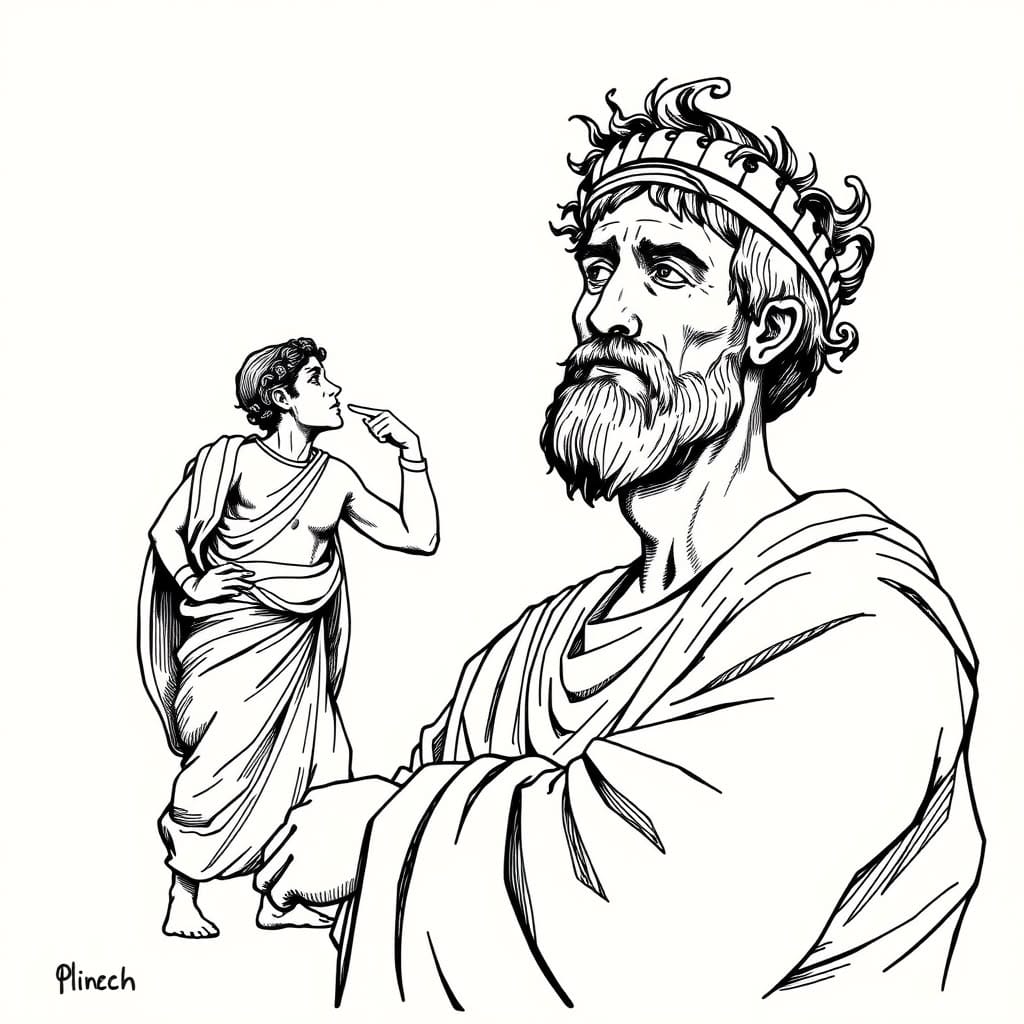
These quotes encapsulate the essence of control philosophy, emphasizing the importance of mastering internal responses over external circumstances. Such insights were pivotal in shaping resilience, both in ancient Rome and contemporary thought.
Conclusion
The teachings of Epictetus have had a profound impact on both ancient and modern perspectives of resilience. By emphasizing the dichotomy of control, he provided a framework for identifying what is within our power—our thoughts and actions—and accepting what is not.
This philosophy was particularly resonant for Romans facing political and personal upheavals, offering solace and a method for maintaining inner peace. Today, its relevance persists, influencing modern approaches like cognitive behavioral therapy.
As we navigate our own challenges, we are reminded that true strength lies in mastering our responses, not in controlling external events. This enduring wisdom prompts us to consider: how might our lives transform if we focus solely on what we can control?
Frequently Asked Questions
What is the dichotomy of control? The dichotomy of control is a Stoic principle introduced by Epictetus, which distinguishes between what is within our control—our thoughts and actions—and what is not, such as external events. This concept guides individuals to focus on their own responses and decisions, fostering inner peace and resilience.
How did it influence Roman resilience? During periods of political instability and personal adversity in ancient Rome, the dichotomy of control offered Romans a philosophical framework to maintain stability and perseverance. By concentrating on their own actions rather than external turbulence, Romans were able to cultivate resilience and find solace amidst chaos.
How is it relevant today? In contemporary times, the dichotomy of control remains highly relevant, particularly in stress management and mental health practices like cognitive behavioral therapy (CBT). By emphasizing control over personal reactions and decisions, individuals today can navigate challenges more effectively, enhancing their capacity for resilience and personal growth.

